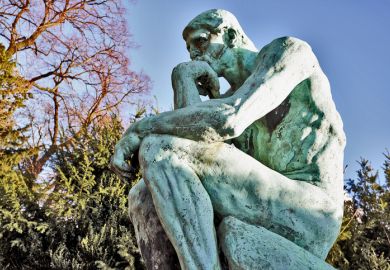I once saw Gore Vidal debate with Norman Mailer on stage in New York. Vidal - handsome and witty, arrogant and erudite - was coldly analytic and convincing. Mailer - pugnaciously crouching and jabbing his arm like a boxer, even when seated, intellectually muddled but more charismatic - appealed to emotion and won over the audience. The last meetings of these intellectual celebrities were more gladiatorial. Mailer butted Vidal with his head and Vidal punched Mailer in the stomach. Finally, Mailer threw an iced glass of whisky in his face and Vidal shoved him into another guest. A formidable adversary, Vidal was often goaded into combat. His life has been marked by public quarrels with Bobby Kennedy, William Buckley, Anais Nin, Truman Capote and his boorish editor, Jason Epstein.
Vidal's grandfather was the blind Senator Gore of Oklahoma, his father (a famous West Point athlete and pioneer pilot) the director of aeronautics in Franklin Roosevelt's administration. But his mother, Nina, who slept with a black taxi-driver and the millionaire John Hay Whitney on the same day, and later married Jackie Kennedy's stepfather, was a monster. Selfish,alcoholic and suffused with self-pity, she loved to exclaim:
"Let's face it, I'm just too self-sacrificing." Like Turgenev, Hemingway and John Osborne, Vidal was a great mother-hater.
The Narcissus of contemporary literature (his nickname was "Me Me"), Vidal, born in 1925, was exceptionally precocious. He had flown a plane as a child; attended three prep schools and graduated from Exeter, been to Europe and seen Mussolini, met Amelia Earhart (his father's mistress) and Clark Gable (his mother's lover) in his teens. By his early twenties he had soldiered in the wartime Aleutians, bought a crumbling convent in Guatemala, worked as a book editor, published several novels, become engaged to a débutante, had an affair with Nin and scored with scores of homosexual pick-ups (he called sailors "seafood").
Vidal had a Faustian success with historical novels and murder mysteries as well as in television, drama and movies, and wrote the film scripts of Ben-Hur , Suddenly , Last Summer and his own political play The Best Man . He knew everyone: Princess Margaret, Eleanor Roosevelt and Jack Kennedy, E. M.Forster, Andre Gide and Jean Cocteau, Paul Newman, Joanne Woodward and Claire Bloom. And he was a close friend of many homosexual writers: Christopher Isherwood, John Lehmann, Tennessee Williams, Truman Capote and Paul Bowles, who thought Vidal was not depraved enough to enjoy Morocco. Capote, a vicious homunculus with a pale foetus face, inspired Vidal's most malicious remarks. He said that he once sat down "on what I thought was a stool and it was Capote", that "the instant lie was Truman's art form", that "he is mindless in the purest sense; but an animal shrewdness has made him succeed in the jungle", that his death was "a good career move".
All this makes Vidal a superb biographical subject. But Fred Kaplan has produced a pedantic, ponderous and bloated book. It is much harder to write a short biography than a long one. He has a mass of information and spares us none of it, emphasising the facts rather than explaining what they mean. His leaden prose provides a ludicrous contrast to Vidal's elegant and epigrammatic word play. Even a fanatical accountant would scream when Kaplan brings the narrative to a halt with mind-numbing details of a home loan: "Gore borrowed $9,500 from Nina, probably for the binder, and then went to contract in September, when he paid in cash a sizeable portion of the purchase price, the rest partly a personal mortgage from Kent, partly a bank mortgage, a portion of the payments to be covered by the rental income."
Kaplan is the master of superfluous information. Rome is "the imperial city of ancient history"; Gone with the Wind is "the movie based on the bestselling novel of the Civil War". He seems unaware of Vidal's allusions to Shakespeare, Byron, Frederick Rolfe and Mark Twain; and he mangles Vidal's quotation of Eliot. Hopelessly confused about England and the English, Kaplan misspells the names of "Chips" Cannon, Claude Auchinleck, Auberon Herbert, Lord Ribbesdale and Andre Deutsch as well as of the American F. O. Matthiessen. There is no newspaper called the Times of London (nor is there a Sunday Times Book Review in New York); Isherwood's family came from Cheshire, not Essex; and Nye Bevan was never prime minister.
The author is also geographically challenged. France was threatened by a German invasion from the east, not the west; there is no great mosque in Seville; Katmandu is in Nepal, not India; Piraeus is on the Aegean, not the Adriatic. And Kaplan, an English professor, makes some real howlers. He puts Pepys in the wrong century; confuses D. H. Lawrence's The Rainbow with Women in Love ; says that Delmore Schwartz's In Dreams Begin Responsibilities is poetry; and claims that Lionel Trilling thought Robert Frost was "an old bucolic cornball" when, in fact, Trilling wrote an innovative essay on "the dark Frost".
Kaplan occasionally comes alive when discussing Vidal's friendship with the bisexual critic Frederick Dupee, his quarrel with Buckley, the production of The Best Man , his caustic report on the Republican convention of 1964. He is also good on patriotic Gore's bold but unsuccessful campaigns as the Democratic candidate for Congress in 1960 and the Senate in 1982, where he would have been a brilliant and valuable catalyst.
Kaplan describes Vidal's sex life, but provides no analysis of his relations with his mother, his lost love or his lifelong companion. Vidal occasionally slept with women and even got one of them pregnant. He had sex with Jack Kerouac, but drew the line at Tennessee Williams. When they returned to their hotel after an unsuccessful prowl and Williams said, "Well, that just leaves us," Vidal replied: "Don't be macabre." He was wildly promiscuous with working-class men, went in for belly-rubbing and frottage and, asserting his manliness, "never sucked cock or got ****ed". Self-controlled and controlling others, he offered his body but withheld his emotions.
Vidal's most important relationship, as he explains in his autobiography, Palimpsest , was with the youthful Jimmie Trimble, whom he fell in love with in prep school and who was killed in the battle of Iwo Jima. Trimble's early death allowed him to remain, in Vidal's imagination, an unattainable ideal, a male Beatrice. Vidal's steely epigrams kept his partners at a distance. In love with himself, he remarked without regret: "It's too bad that I can't love anyone." As in Joyce's great story, Vidal's closest connection was not with the living but the dead.
Vidal met his lifelong companion, the slightly younger Howard Auster, in the Everard Baths in New York in 1950. They had a disastrous one-night stand and, since then, have lived together without a sexual connection. Vidal's harmonious relations with Auster - the passive caretaker of Vidal's practical affairs and literary legend - has spared him the emotional turmoil that Somerset Maugham, Osbert Sitwell and W. H. Auden suffered with their paid companions, and saved him from Williams's and Capote's disastrous decline into alcohol and drugs.
Kaplan also fails to judge Vidal's stature and achievement, which has received very little attention from the academy. Like many American novelists - Mailer, Mary McCarthy, James Baldwin and John Updike -Vidal is much better as an essayist than a novelist. His best book is the massive United States: Essays , 1952-1992. His greatest intellectual legacy is the liberal political ideas that he has been advocating since 1960: dialogue with one's enemies, a smaller military budget, elimination of nuclear weapons, effective gun control, abolition of capital punishment, a fairer tax structure, more funds for schools and greater defence of civil liberties.
After commissioning this book, its narcissistic subject disliked the reflection he saw in the biographical pool and publicly tried to distance himself from it. Vidal has managed to elude his flat-footed sleuth, but Kaplan's book must have pleased him in one way. As he wrote in his most famous La Rochefoucauldian maxim: "It's not enough to succeed. Others must fail."
Jeffrey Meyers is fellow, Royal Society of Literature, and the author of several literary biographies.
Gore Vidal
Author - Fred Kaplan
ISBN - 0 7475 4671 1
Publisher - Bloomsbury
Price - £25.00
Pages - 850
Register to continue
Why register?
- Registration is free and only takes a moment
- Once registered, you can read 3 articles a month
- Sign up for our newsletter
Subscribe
Or subscribe for unlimited access to:
- Unlimited access to news, views, insights & reviews
- Digital editions
- Digital access to THE’s university and college rankings analysis
Already registered or a current subscriber? Login



